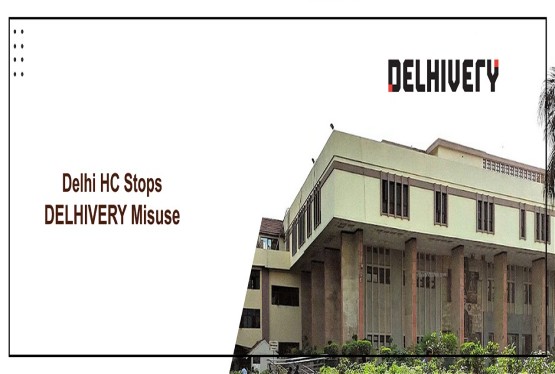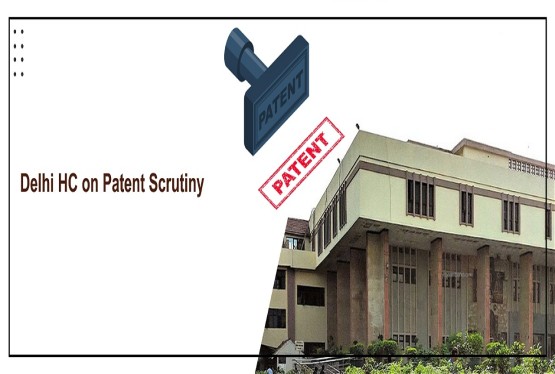On 3 March 2025, the Delhi High Court delivered a significant decision in the case of DS Drinks and Beverages Pvt. Ltd. vs Hector Beverages Pvt. Ltd., reinforcing the judicial protection granted to sub-brands and dominant elements in composite trademarks. The judgment, delivered by Hon’ble Justice [Name], upheld an interim injunction in favour of Hector Beverages, makers of the widely recognized Paper Boat brand. The dispute focused on the usage of the word “SWING”, which Hector claimed as a sub-brand under its composite trademark “PAPERBOAT SWING”, used for fruit-based juices. DS Drinks had launched an energy drink under the name “CATCH SWING ENERGY INVIGORATES & MIND”, prompting Hector to seek injunctive relief for trademark infringement and passing off.
Legal Issues Involved
-
Whether “SWING” constitutes a distinctive and protectable sub-brand within “PAPERBOAT SWING”.
-
Whether DS Drinks’ usage of “CATCH SWING” constitutes infringement under the Trade Marks Act, 1999.
-
Whether energy drinks and fruit juices qualify as allied and cognate goods, thereby increasing the risk of consumer confusion.
Background of the Dispute
Hector Beverages, known for its popular beverage brands like Paper Boat and Tzinga, has been marketing fruit-based juices under the sub-brand "SWING" since 2017. The company holds registered trademarks for "PAPER BOAT SWING JUICIER DRINK" (Registration No. 3691925, dated 1 December 2017) and "SWING FIZZ" (Registration No. 5280472, dated 11 January 2022) under Class 32, covering non-alcoholic beverages
DS Drinks and Beverages Private Limited applied for the Trademark Registration of the mark "CATCH SWING ENERGY INVIGORATES & MIND" under Class 32 on a 'proposed to be used' basis, intending to launch an energy drink. Hector Beverages filed a suit alleging that DS Drinks' use of the term "SWING" infringed upon its registered trademark and amounted to passing off, leading to an interim injunction granted by the Trial Court.
Legal Issues and Arguments
The primary legal issues before the Delhi High Court were:
-
Dominance of 'SWING' in Hector's Trademark: Whether "SWING" constitutes a dominant and distinctive part of Hector Beverages' composite trademark "PAPERBOAT SWING".
-
Similarity and Likelihood of Confusion: Whether DS Drinks' mark "CATCH SWING ENERGY INVIGORATES & MIND" is deceptively similar to Hector's mark, leading to potential consumer confusion.
-
Applicability of the Anti-Dissection Rule: Whether the Trial Court erred by dissecting the composite mark "PAPERBOAT SWING" to grant exclusivity over the term "SWING.
-
Allied Nature of Goods: Whether fruit juices and energy drinks are considered allied and cognate goods, thereby increasing the likelihood of confusion among consumers.
Arguments by DS Drinks:
-
Contended that "CATCH SWING ENERGY INVIGORATES & MIND" is a distinct mark and that "SWING" is a common English word.
-
Argued that Hector uses "SWING" for juices and "TZINGA" for energy drinks, indicating a clear distinction in product lines.
-
Invoked the anti-dissection rule, asserting that trademarks should be considered in their entirety rather than dissecting individual components.
Arguments by Hector Beverages:
-
Asserted that "SWING" has acquired distinctiveness and goodwill as a sub-brand under "PAPERBOAT", warranting protection.
-
Emphasized that the use of "SWING" by DS Drinks in the energy drink segment could mislead consumers into believing an association with Hector's products.
Court's Findings
The Delhi High Court upheld the interim injunction in favor of Hector Beverages, making the following observations:
-
Recognition of 'SWING' as a Sub-Brand: The Court acknowledged that "SWING" had acquired distinctiveness and goodwill as a sub-brand under "PAPERBOAT", and thus, deserved protection.
-
Likelihood of Confusion: Considering that fruit juices and energy drinks are often sold in proximity and cater to similar consumer bases, the Court found a high likelihood of consumer confusion due to the use of the term "SWING" by both parties.
-
Dominant Feature Doctrine: The Court applied the principle that if a component of a composite trademark is dominant and distinctive, it can be protected independently. In this case, "SWING" was deemed the dominant feature of Hector's mark.
-
Rejection of Anti-Dissection Argument: The Court held that while the anti-dissection rule is a valid principle, it does not preclude the protection of dominant elements within a composite mark, especially when such elements have acquired distinctiveness.
Relevant Legal Provisions and Case Laws
-
Section 29(2) of the Trade Marks Act, 1999: Addresses infringement due to the use of identical or similar marks for similar goods or services, leading to confusion.
-
Section 29(4) of the Trade Marks Act, 1999: Pertains to infringement involving dissimilar goods or services when the registered trademark has a reputation in India.
Final Order
The Delhi High Court dismissed the appeal by DS Drinks and upheld the interim injunction granted by the Trial Court, restraining DS Drinks from using the mark "CATCH SWING ENERGY INVIGORATES & MIND" for its energy drinks. The Court emphasized the need to prevent consumer confusion and protect the goodwill associated with Hector Beverages' "SWING" sub-brand.
Conclusion
This judgment underscores the Indian judiciary's recognition of sub-brands and dominant elements within composite trademarks. It reinforces the principle that even common words can attain distinctiveness and warrant protection when they have acquired goodwill and are prominently associated with a particular brand. The decision serves as a cautionary tale for businesses to conduct thorough trademark searches and assessments before adopting marks that may encroach upon existing trademarks, especially those with established market presence.






























_(b)_of_the_Trademark_Act,_1999_(1)_crop10_thumb.jpg)



_crop10_thumb.jpg)




























_crop10_thumb.jpg)
_crop10_thumb.jpg)






_crop10_thumb.jpg)








_crop10_thumb.jpg)



_crop10_thumb.jpg)





























_crop10_thumb.jpg)

















_crop10_thumb.jpg)






_crop10_thumb.jpg)












































































































































_crop10_thumb.jpg)




































_crop10_thumb.jpg)












_crop10_thumb.jpg)














































_crop10_thumb.jpg)




































































































